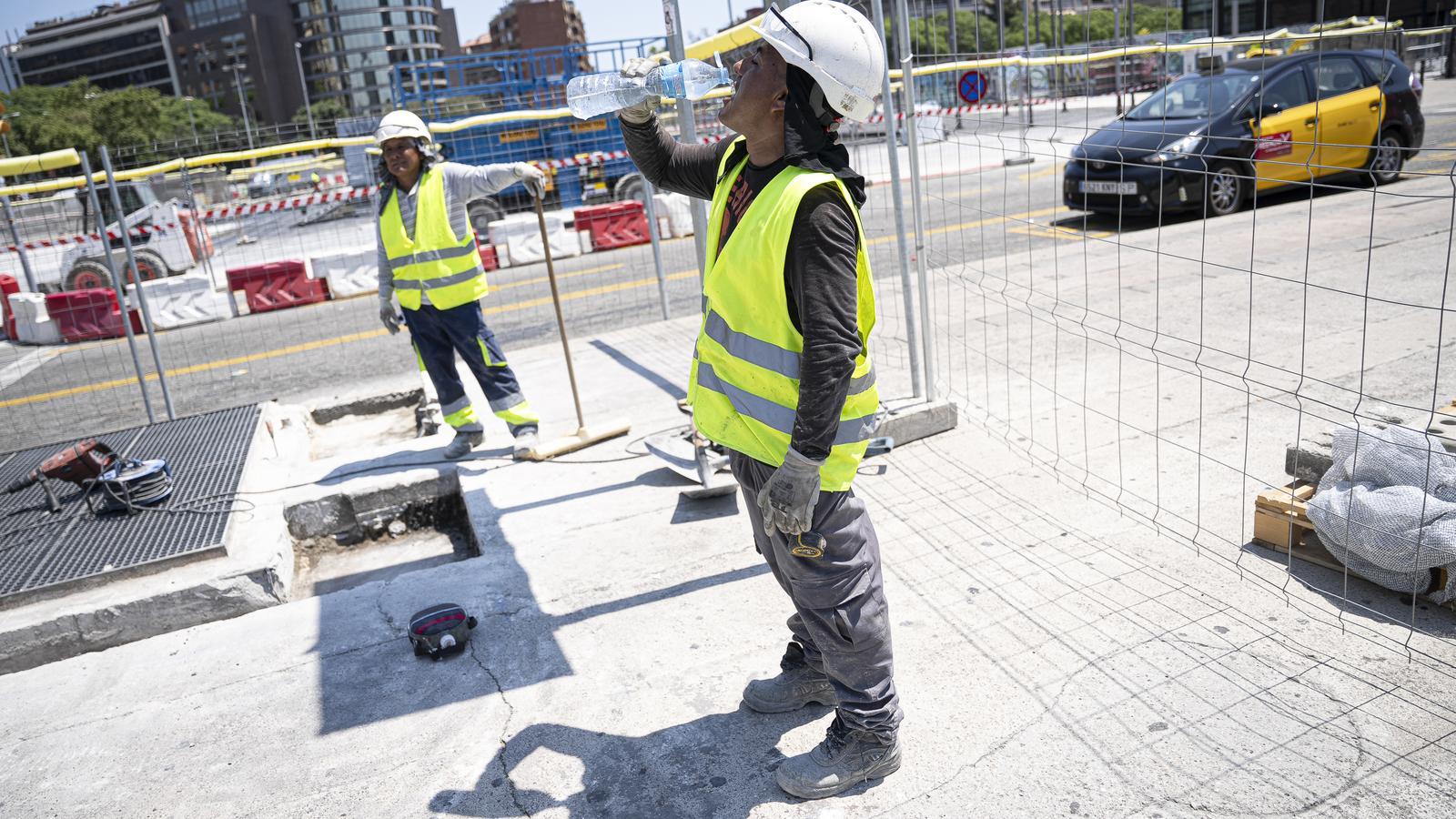Maximum alert regarding fatal workplace accidents


Typically, when there is more activity and, therefore, more people working, the chances of workplace accidents increase. Consequently, it is necessary to strengthen prevention measures, as is the case with fires: prevention—implementing the necessary initiatives—is better than cure.
However, in the data from January to July of this year in Catalonia, despite taking into account that there is a good pace of activity in most sectors, some increases are noted that are striking: 52 people have lost their lives in the workplace, which represents a 44% increase compared to the same period last year.
And all of this does not include those that occurred in August. Of these, the most notable was the death of a seasonal worker in Alcarràs, the victim of heat stroke, according to the initial autopsy, while harvesting fruit at 40 degrees Celsius. This isn't the only case: a municipal cleaning worker in Barcelona fainted upon arriving home from work the last weekend of June, during the first heat wave of this summer.
Furthermore, this month, an Ebro worker died at the former Nissan factory in Barcelona's Zona Franca. This is the second such incident this year at these same industrial facilities, shared by Ebro and the Chinese company Chery. In April, a 41-year-old worker working for a subcontracted company was electrocuted.
It's great that minor and serious workplace accidents are being reduced, but not at the cost of a spike in fatalities. This issue is of concern to the Ministry of Business and Labor, as well as to many companies and unions. Prevention and surveillance must be strengthened to prevent these figures from skyrocketing as they are currently occurring.
The rising trend in fatal workplace accidents during the first quarter prompted the head of the Ministry, Miquel Sàmper, to announce a plan to reduce accidents. The idea was to create a body of occupational risk prevention delegates made up of members of unions and employers' associations. The essential objective was to combat the scourge of workplace accidents. In its initial phase, the initiative, announced last May, envisaged monitoring companies and intended to conduct 1,080 visits per year. So far, it has not been implemented.
Given the evolution of the problem, the government will have no choice but to try to attract all the parties involved to implement its plan and overcome Foment del Treball's reluctance. Both the unions and the other employers' association, Pimec, were willing to negotiate. Measures and solutions are needed to prevent the possibility of dying while working from becoming normalized. The unions have long warned that the prevention system "is not resolving the most obvious safety risks" and are simultaneously calling for regulatory changes. It is clear that something must be done because, as the unions say, "we should not die at work from preventable causes."
